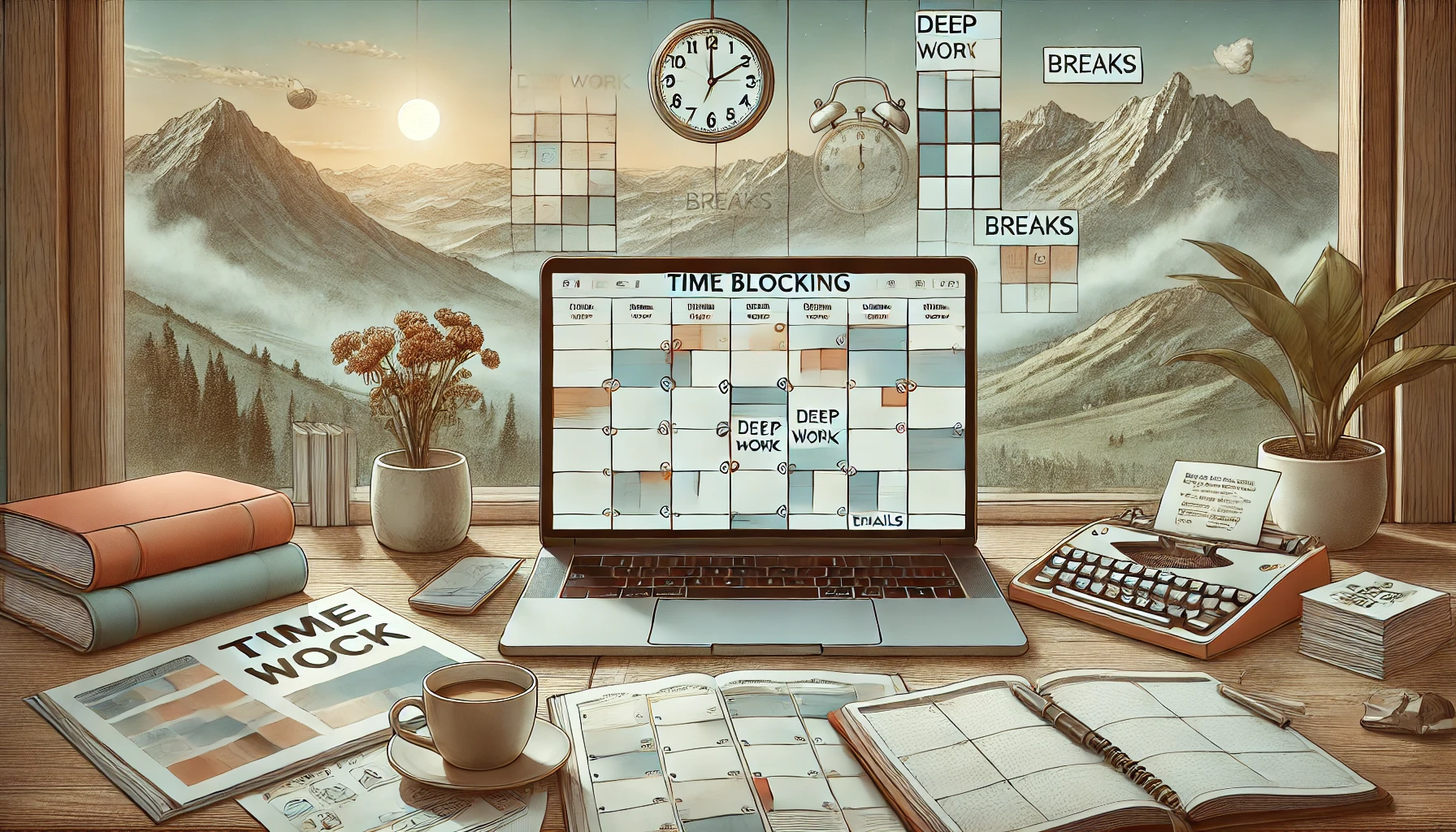Feeling like there are never enough hours in the day is a common struggle, especially for busy professionals juggling multiple responsibilities. Whether you’re managing a team, running your own projects, or trying to balance personal and professional goals, time often seems to slip away. The problem? Hidden time wasters that eat into your schedule, along with typical time wasters like social media, unnecessary meetings, or procrastination, leaving you with less time for meaningful work. In this guide, we’ll explore 9 strategies to help you identify and eliminate time wasters every week, so you can reclaim your time and focus on what truly matters.
Introduction to Time Management
Effective time management is the foundation of productivity and success, both at work and in your personal life. It’s about making intentional choices—prioritizing what matters, organizing your day, and minimizing distractions. However, even the best-laid plans can be derailed by time wasters. These are activities or habits that consume your valuable time without delivering meaningful results. Whether it’s getting caught up in unnecessary meetings or losing track of time on social media, time wasters can quickly add up and undermine your progress. By learning to identify and manage these time wasters, you can take control of your schedule, boost your efficiency, and achieve your goals with greater ease. In this article, we’ll explore the different types of time wasters and share proven strategies for managing them, so you can make the most of every day.
Understanding Time Wasters
Time wasters come in many forms, but they generally fall into two categories: obvious time wasters and hidden time wasters. Obvious time wasters are easy to spot—think endless scrolling on social media, binge-watching TV, or getting sidetracked by office gossip. While these activities might feel relaxing or entertaining, they often lead to wasted time and lost productivity, making it harder to accomplish your goals.
Hidden time wasters, on the other hand, are more subtle and can be even more damaging. These include habits like excessive research, striving for perfection on every task, or constantly switching between projects. While these activities might seem productive on the surface, they can actually drain your energy, increase your stress levels, and prevent you from making real progress. Recognizing both obvious and hidden time wasters is the first step toward reclaiming your time and reducing unnecessary stress.
Track Your Daily Tasks
One of the most effective ways to identify where your time is going is by tracking your daily activities. It’s easy to get caught up in tasks throughout the day and wonder where the hours went. Keeping a time log a detailed record of your activities with start and end times helps you track daily activities and identify time wasters. This tool allows you to see how much time you’re actually spending on work, meetings, breaks, and distractions. This insight can be a game-changer in identifying hidden time wasters.

Tracking your time provides you with a clear picture of your daily routine. It highlights unproductive patterns and helps you recognize which tasks are taking longer than they should. This is crucial for making data-driven decisions about how to optimize your schedule.Start by using a simple tool like Weekplan’s Time Tracking feature to log your activities. Each day, spend a few minutes recording what you’ve done, even if it feels tedious at first. At the end of the week, review your log to see which tasks consumed the most time and identify opportunities for improvement. This practice can reveal surprising insights, such as how much time is wasted on social media or non-essential meetings.
Set Weekly Priorities
Setting clear priorities at the beginning of the week is a powerful way to prevent time wasters from creeping into your schedule. Without a clear focus, it’s easy to get distracted by minor tasks or sudden requests that don’t align with your goals. Weekplan’s Quadrant System can help you categorize tasks based on urgency and importance, ensuring you spend your time on what truly matters.

By setting priorities, you can ensure that your energy is directed toward high-impact tasks. This prevents you from getting sidetracked by less important activities and helps you make consistent progress toward your goals. It also reduces stress since you’ll have a clear plan for the week. At the start of each week, use Weekplan’s Weekly Task Manager to list out your top priorities. Focus on tasks that align with your long-term goals and allocate specific time blocks for each. Review your list daily to stay on track, making adjustments as needed. This will keep you focused and prevent time-wasting activities from slipping into your day.
Minimize Unnecessary Meetings
Meetings can be one of the biggest time wasters, especially if they lack a clear agenda or purpose. Pointless meetings are a major contributor to lost productivity, as they often waste employees’ time without delivering meaningful outcomes. Many professionals find themselves spending hours each week in meetings that could have been handled with a quick email or a brief check-in. While some meetings are necessary, it’s essential to be strategic about when and why you schedule them. Too many meetings can hinder overall productivity, so consider strategies like designating meeting-free days or consolidating topics to reduce their frequency and improve efficiency. Reducing unnecessary meetings frees up time for focused work, allowing you to dedicate your energy to tasks that actually move the needle. It also reduces the mental fatigue that comes from constant context-switching between meetings and productive work sessions.
Before scheduling a meeting, ask yourself if the discussion can be handled through email or a shared document. If a meeting is required, keep it short and focused with a clear agenda. Use Weekplan’s Team Collaboration features to share updates and progress reports, minimizing the need for frequent status meetings. This approach not only saves time but also keeps your team aligned on key priorities.
Use Time Blocking Techniques
Time blocking is a powerful strategy to manage your schedule more effectively. By allocating specific time slots for different tasks, you can maintain focus and reduce the temptation to multitask. This method is particularly effective for those who struggle with procrastination or frequent interruptions, especially due to constant distractions like emails and notifications. Time blocking ensures that you’re dedicating sufficient time to important projects, helping you to stay on task and avoid distractions. It also creates a sense of structure in your day, making it easier to transition from one activity to the next without wasting time figuring out what to do next.

Start by using Weekplan’s Timeboxing feature to schedule blocks of uninterrupted time for deep work, meetings, and even breaks. Consider using apps or browser extensions to block distracting websites during these focused work periods. Be realistic about how much time each task will take, and avoid overloading your schedule. Set boundaries around social media by limiting social media use to specific times, which helps avoid unnecessary distractions. Stick to your time blocks as much as possible, and adjust them only if absolutely necessary. This disciplined approach will help you maximize your productivity and minimize wasted time.
Eliminate Multitasking
Multitasking might seem like a great way to get more done, but it’s actually a major productivity killer. Trying to juggle multiple tasks at once often leads to more mistakes and reduced productivity. When you switch between tasks, your brain takes time to adjust, which can lead to errors and wasted time. Focusing on one task at a time leads to better results and faster completion. By eliminating multitasking, you can improve the quality of your work and reduce the amount of time it takes to complete tasks. This approach also decreases stress and helps you feel more accomplished at the end of the day.
Organize your tasks using Weekplan’s Task Management system. Prioritize your tasks for the day and tackle them one by one, starting with the most important. Resist the urge to check emails or switch tasks until you’ve completed the current one. This single-tasking approach ensures that you’re fully focused and minimizes the time lost to task-switching.
Limit Social Media Use
Social media can be a huge distraction, leading to hours of wasted time each week. Whether it’s checking notifications, scrolling through feeds, or engaging in conversations, these activities can eat away at your productive time. Setting boundaries around social media use is essential to staying focused. Reducing social media use helps you reclaim hours that can be better spent on productive tasks. It also reduces stress by limiting exposure to constant notifications and updates, allowing you to focus more deeply on your work.

Set specific times during the day when you allow yourself to check social media, and stick to these designated periods. Consider using apps or browser extensions to block social media sites during work hours. Weekplan’s scheduling features can help you set reminders for focused work periods, ensuring that social media doesn’t become a distraction during these times.
Delegate Routine Tasks
Many professionals waste valuable time on tasks that could easily be delegated to others. Trying to do everything yourself not only slows you down but also prevents you from focusing on high-value activities. Learning to delegate effectively is crucial for maximizing your productivity. Delegating tasks not only frees up your time but also empowers your team to take on more responsibility. This leads to greater efficiency and a stronger sense of ownership among your team members, ultimately boosting overall productivity.
Identify routine or repetitive tasks that don’t require your direct involvement. Use Weekplan’s Task Assignment feature to delegate these tasks to team members. Clearly communicate expectations and deadlines to ensure that the work is completed efficiently. This approach allows you to focus on strategic tasks that require your expertise.
Set Clear Boundaries
Without clear boundaries, it’s easy to let work spill into your personal time or to be constantly interrupted during focused work hours. This not only reduces productivity but also increases stress. Establishing boundaries helps you protect your time and maintain a better work-life balance. Setting boundaries ensures that you have dedicated time for deep work without interruptions. It also helps you maintain a clear separation between work and personal life, leading to better mental health and overall productivity.

Communicate your work hours and availability to your team, clients, and even family members. Use Weekplan’s scheduling features to block off periods for focused work and personal time. Turn off non-essential notifications on your phone and computer during these periods to minimize distractions. This way, you can be fully present in whatever you’re working on.
Conduct a Weekly Review
A weekly review is a powerful habit that allows you to reflect on how you spent your time and identify areas for improvement. Many time wasters go unnoticed simply because we’re too busy to stop and reflect. Taking a few minutes each week to review your activities can reveal patterns and help you optimize your schedule. Regular reviews help you become more aware of where your time is going. This reflection process allows you to make data-driven adjustments, helping you eliminate inefficiencies and maximize productivity. It also provides a sense of accomplishment as you can track your progress over time.\

Set aside 30 minutes at the end of each week to review your completed tasks using Weekplan’s Weekly Planner. Reflect on what went well, where you got sidetracked, and what you can improve in the upcoming week. This habit ensures continuous improvement and helps you stay aligned with your goals.
Frequently Asked Questions (FAQs)
- How can Weekplan help me identify time wasters? Weekplan offers tools like time tracking, task prioritization, and weekly reviews to help you identify and reduce time wasters.
- What is time blocking, and how does Weekplan support it? Time blocking involves assigning tasks to specific time slots. Weekplan’s calendar feature makes it easy to implement this strategy.
- Can Weekplan be used for goal setting? Absolutely! Weekplan’s goal-setting feature helps you break down large goals into weekly targets, making them easier to achieve.
- Is there a way to track my productivity using Weekplan? Yes, Weekplan provides tools like the Urgent-Important Matrix and weekly reviews to help you track and improve productivity.
- How do I reduce distractions during work? Use Weekplan’s focus timer to work in focused bursts, minimizing interruptions from social media and notifications.
- What is the Urgent-Important Matrix? It’s a tool that helps you prioritize tasks based on their urgency and importance, which is supported by Weekplan.
- Can Weekplan help with team productivity? Yes, Weekplan allows teams to assign tasks, set goals, and track progress, making it easier to collaborate efficiently.
- How do I know which tasks to prioritize? Weekplan’s task prioritization feature can help you focus on tasks that align with your weekly goals.
- What are some tips for effective weekly planning? Set clear goals, use time blocking, and reflect on your week using Weekplan’s planning tools.
- Is Weekplan suitable for remote teams? Yes, Weekplan is perfect for remote workers who need to coordinate tasks and stay organized.

More Posts
How to Organize Your Daily Life - 10 Best Tips
Living in a chaotic, disorganized world can seem overwhelming, but you can turn your day-to-day life into a well-oiled machine with the right tips and tools. Recognizing the power of organization in our...
10 Quotes About Willpower to feel Productive again
Willpower is key to staying on track and hitting our targets. It’s just like a muscle, which means it can get tired. But, you can also make it stronger by using it more....
5 Best Online Calendar Planners (Free & Paid)
Focusing and keeping up with schedules can take time and effort. It can also be overwhelming when tasks and deadlines are late. Every employee wants to enhance their performance and productivity; this is...
These 11 Time-Wasting Habits Are Killing Your Productivity
In today’s world, we face many tasks and challenges every day. This makes our responsibilities never-ending. However, some time-wasting habits sneak into our lives without us knowing. These habits make us less productive at work....